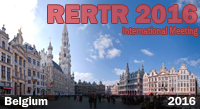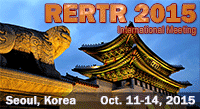Abstracts and Available Papers Presented at the
1997 International RERTR Meeting
RERTR END-GAME: A WIN-WIN
FRAMEWORK
Phasing Out Remaining Global HEU Commerce by
Conditionally and Temporarily Renewing U.S. Exports of HEU
Alan J. Kuperman and Paul L. Leventhal
Nuclear Control Institute
1000 Connecticut Ave NW, Suite 804
Washington DC 20036
USA
Introduction
The RERTR program stands on the brink of fulfilling its historic mission. However, a series of missteps and misunderstandings have recently raised the risk that defeat will be snatched from the jaws of victory. Perhaps the most serious threat to the RERTR regime is posed by France's pending import of 625 kilograms of bomb-grade, highly enriched uranium (HEU) from Russia, intended primarily to fuel its high-flux research reactor at the Institute Laue-Langevin in Grenoble, as well as its Orphee research reactor. As the first export of HEU from Russia to a facility outside the former Soviet bloc, this precedential transaction would establish Russia as a new global supplier of bomb-grade uranium, potentially setting the stage for a rise in international HEU commerce, rather than its phase-out as envisioned under the RERTR program. Apparently, France turned to Russia for supply of the fuel because the United States was perceived as unable or unwilling to continue supplying such fuel in the wake of the U.S. Energy Policy Act of 1992, which, pursuant to its so-called Schumer Amendment, places sharp restrictions on HEU exports. Unexplained delays in Russia's shipment of this material to France provide a fortuitous window of opportunity in which efforts can and should be made by France and the United States to resolve present differences in a manner beneficial to each, as well as in the interest of global security.
This paper proposes an arrangement under which the United States would renew exports of HEU to France, in exchange for pledges from France enabling the export to comply with the principles and objectives of the RERTR program as embodied in U.S. law. In so doing, the arrangement would obviate the need for Russian HEU export, thereby avoiding its dangerous precedent. By enabling high quality scientific research to continue, while simultaneously helping to fulfill the RERTR program's original goal, such an arrangement would truly be a "win-win' solution.
![]() PDF version NOT available
PDF version NOT available
An electronic copy of the full paper is not available at this time. If you would like
to receive a copy of this paper, please contact the author.
Contact:
Mr. Alan J. Kuperman
Nuclear Control Institute
1000 Connecticut Ave NW, Suite 804
Washington DC 20036, USA
Phone: 202-822-8444
Fax: 202-452-0892
E-mail: [email protected]
Web Site http://www.nci.org/nci




